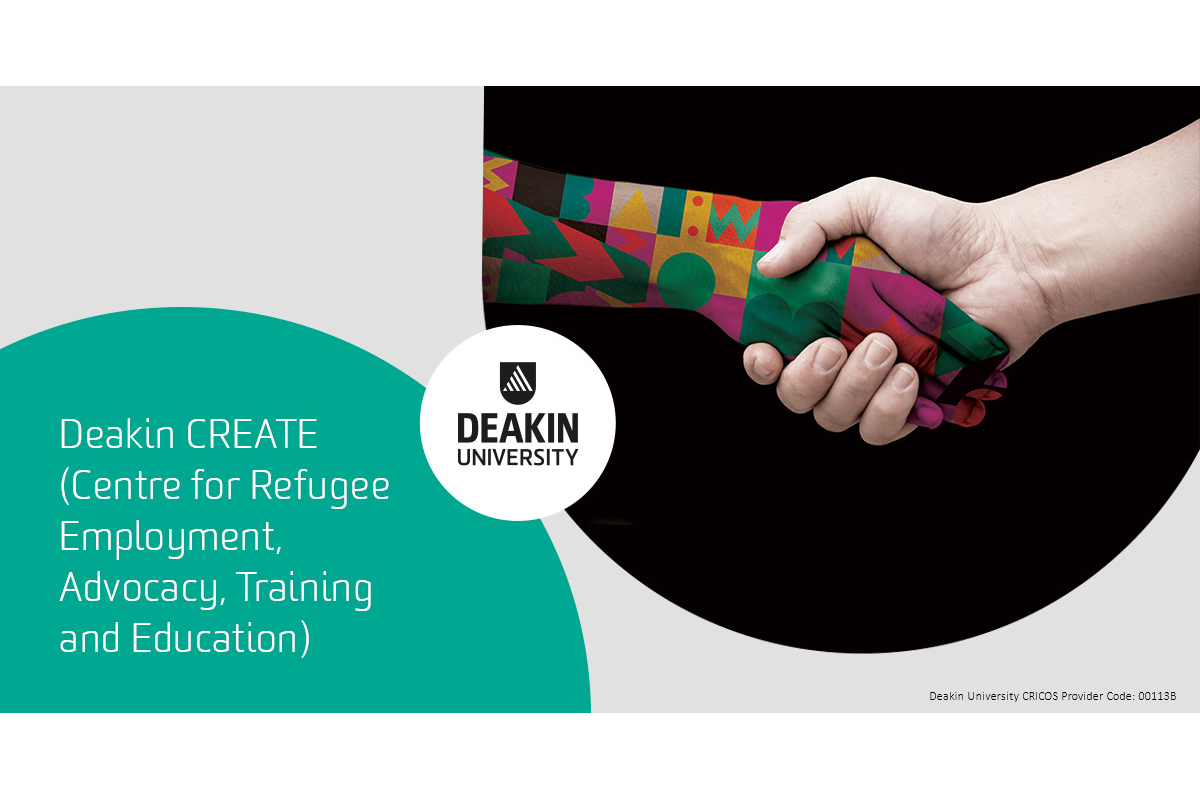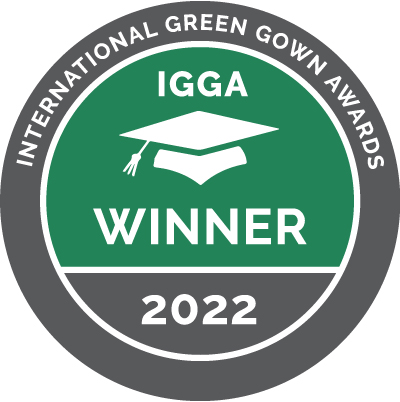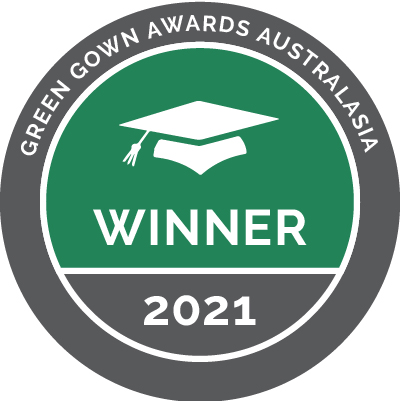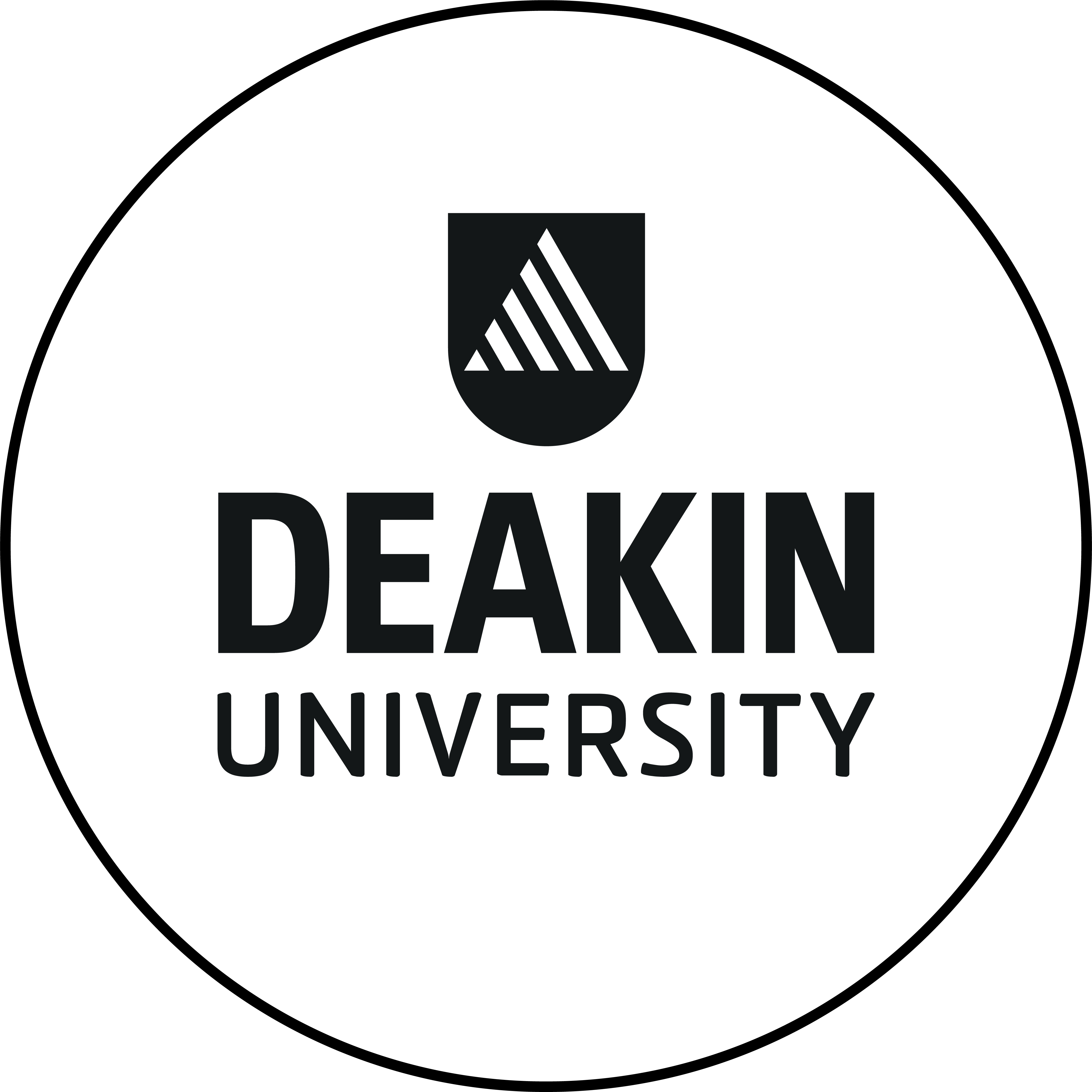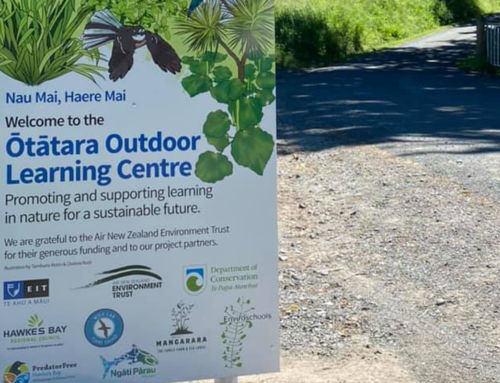The Deakin Centre for Refugee Employment, Advocacy, Training and Education (CREATE)
The Deakin Centre for Refugee Employment, Advocacy, Training and Education (CREATE) was established in 2019 to help people from a refugee background rebuild their careers through access to education and meaningful employment. CREATE develops research-based practical solutions to support refugees, including running career clinics and online courses, and developing information guides and interactive workbooks.
In such initiatives, Deakin CREATE works collaboratively with partners such as the Refugee Council of Australia, vocational and higher education institutions, social enterprises and refugee support agencies. All the materials it creates are provided to partners free-of-charge.
In 2019 CREATE obtained philanthropic funding to run career clinics for 450 people from a refugee background over a three year period. Out of the participants completing the career clinics in 2020, over 60 percent found meaningful employment. CREATE’s flagship guide for employers looking to employ individuals from refugee backgrounds is currently being utilised by over 30 community sector organisations.
> The initiative
People from a refugee background living in Australia, especially those on temporary or bridging visas, find it extremely difficult to access higher education and obtain employment opportunities commensurate with their skills. Presently in Australia, legislation does not entitle refugees on bridging or temporary protection visas to access higher education through Commonwealth supported places. Instead, they are grouped with international students, and must pay full course fees. In addition, employers are reluctant to employ people from a refugee background. According to the best available evidence, only 17 per cent of refugees were in paid work after being in Australia for 18 months.
In order to assist those from a refugee background to access education and obtain employment and overcome the barriers they face, Deakin CREATE was launched in 2019 and is based in the Faculty of Business and Law at Deakin University. To support the work of Deakin CREATE, Deakin provide funding for a postdoctoral research fellow on a yearly basis and a budget of $50,000 per year. It has been running now for just over two years and brought in around $300,000 of income. Researchers from CREATE have developed guides for individuals looking to access higher education and for higher education institutions on how to support them once at university. The production of such guides were supported by a grant from the Bennelong Foundation. CREATE also runs information sessions for university providers on how to support students from a refugee background and for people from a refugee background on how to access higher education. Researchers from CREATE have also recently published an employment guide for organizations looking to employee people from a refugee background that is presently used by over 30 community sector organizations. In addition, we are working with Host International to have the employment guide customised for New Zealand.
To date Deakin CREATE has supported over 70 students from a refugee background to access vocational and tertiary education in Australia, and has organized numerous workshops across different states on how to access higher education. In addition to philanthropic funding, Deakin CREATE has obtained funding from the Department of Home Affairs to develop a video course and associated workbook to help culturally and linguistically diverse graduates, including those from a refugee background, to find work in regional areas of Australia, and funding from the National Centre for Student Equity in Higher Education to examine the career support provided to university students from a refugee background. In 2019 CREATE obtained philanthropic funding to run career clinics for 450 people from a refugee background over a three year period in Victoria. Out of the participants completing the career clinics in 2020, over 60 percent found meaningful employment. In 2021 further philanthropic funding was obtained to support the launch of a graduate career clinic for over 60 participants per year.
CREATE has obtained significant external recognition for its work. CREATE was the winner of the Equity and Opportunity category at the Australian Financial Review Higher Education Awards in 2020. It was also the winner of the Emerald Interdisciplinary Research Social Impact Award and obtained an AACSB Innovations that Inspire Award in 2021. It is also a finalist in the Championing Diversity category of the Pioneer International Education Awards 2021.
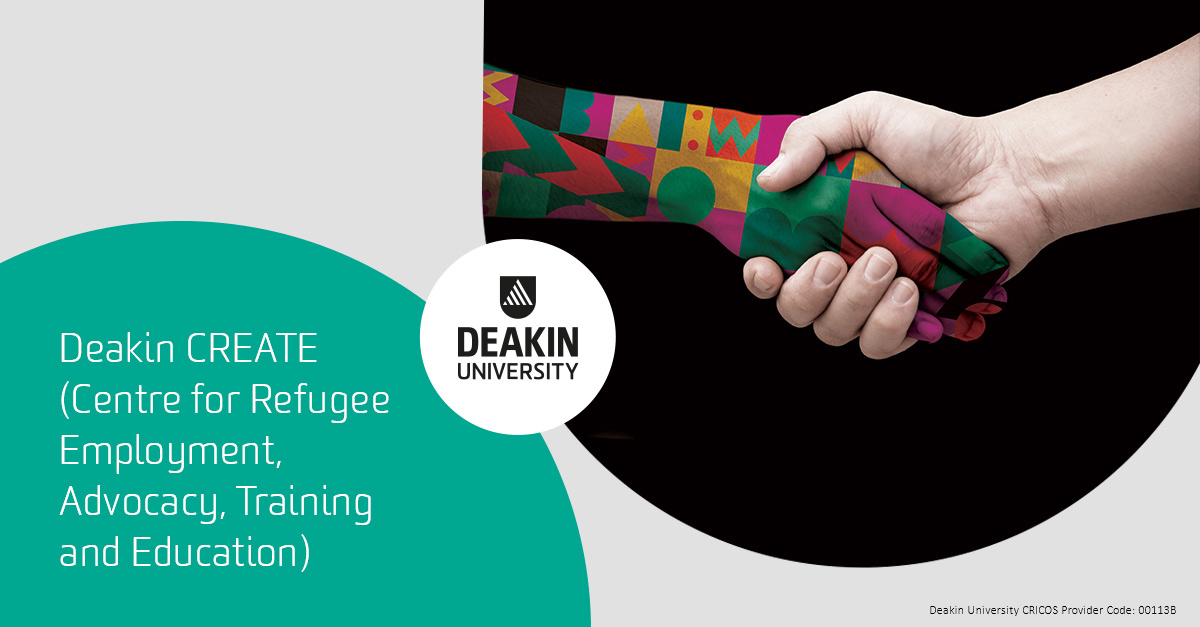
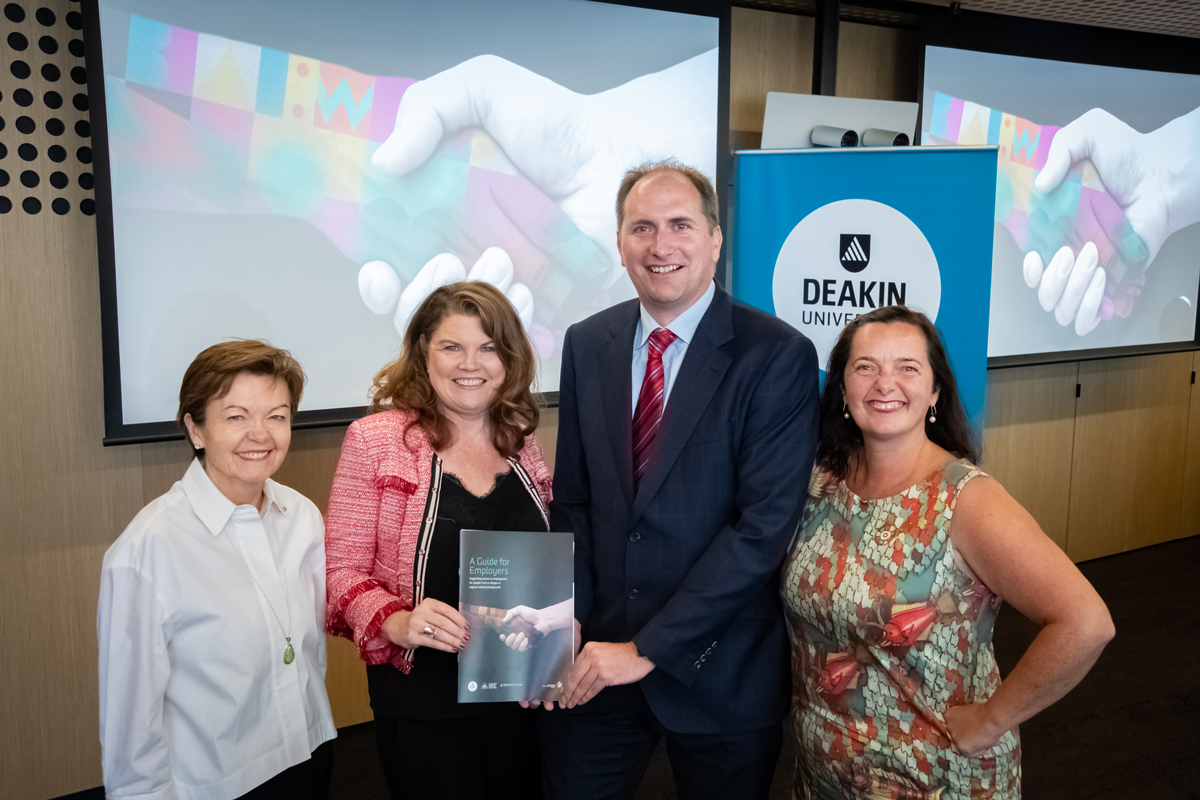

> Environmental and social benefits
Deakin CREATE has to date supported over 100 individuals to find work or gain access to tertiary education. From 2020 to 2022 the career clinics launched by Deakin CREATE will support over 450 highly skilled job seekers from a refugee background to obtain work. Through supporting people from a refugee background to find employment that is commensurate with their skills and experience, Deakin CREATE delivers significant economic and social benefits, for the Australian government, taxpayers, refugee support agencies, peak bodies and of course the individuals themselves.
> Leadership and engagement
Deakin CREATE is innovative in that it is the first applied research centre globally that focuses on issues related to both education and employment for people from a refugee background. In developing initiatives such as career clinics and employment/education guides it actively involves students from a refugee background as research assistants to ensure refugees’ ‘lived experiences’ are considered in the design of initiatives, and provides them with an income to support themselves through university.
Deakin CREATE has developed new innovative approaches to support the career development of people from a refugee background. It has launched weekly career clinics that employ an innovative mentor/mentee model where mentors support mentees on a weekly basis over a period of eight weeks. It focuses on supporting highly skilled refugees to seek work that is commensurate with their skills and experiences, and is therefore different from other employment programs that tend to focus on supporting people to find unskilled work. In addition, it is the first program of its kind to deliver career development to people from a refugee background in a virtual form.
The use of online platforms to deliver live interactive career clinics, allows delivery of career support at low cost and facilitates the involvement of industry mentors who have significant demands on their time and prefer to engage virtually. Conducting clinics online has also allowed the project team to reach individuals in regional areas where the provision of culturally sensitive careers advice from community partners is not readily available.
CREATE works closely with over 30 refugee sector agencies to recruit participants for the clinics. It also works closely with a number of philanthropic foundations that fund its activities.
> Wider societal impact
Through supporting people from a refugee background to find employment that is commensurate with their skills and experience, Deakin CREATE delivers significant economic and social benefits, for the Australian government, taxpayers and individuals from a refugee background. Furthermore, when refugees attain meaningful employment there is a positive impact on support agencies who can then redirect resources, material aid and services to others in need. Deakin CREATE has to date supported over 100 individuals to find work. It has been estimated in a recent report by KPMG that for every 100 humanitarian migrants obtaining jobs as a result of employment programs, there are associated taxpayer savings of $1.44 million per year and additional income for humanitarian migrants of $1.41 million per year. From 2020 to 2022 the career clinics launched by Deakin CREATE will support over 450 highly skilled job seekers from a refugee background to obtain work.
Additionally, we have been informed by a number of industry partners that they are now revisiting their diversity and inclusion policies as a result of being involved in our careers clinics, to ensure people from a refugee background are explicitly sought and included in hiring practices.

